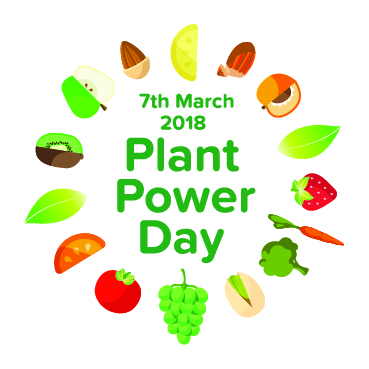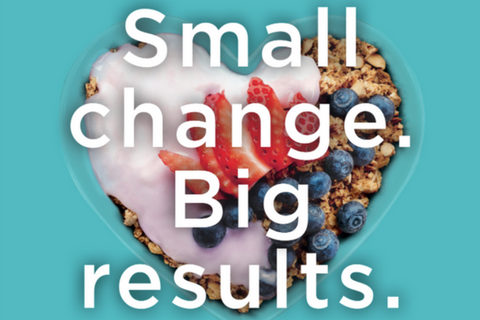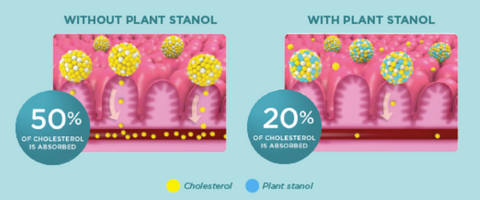
THE DEBATE OVER THE POWER OF PLANT-BASED DRINKS: PUTTING THE MISCONCEPTIONS TO BED
Below is a Press Release from the Alpro Science & Nutrition Team this week which we felt was worth sharing as it highlights a new and extensive review on the nutrition of plant-based drinks addressing a number of nutritional misconceptions.
PRESS RELEASE: 7TH March 2018
THE DEBATE OVER THE POWER OF PLANT-BASED DRINKS:
PUTTING THE MISCONCEPTIONS TO BED
7th March 2018: The debate on the benefits of plant-based eating, including plant-based drinks, is a hot topic with opposing messages from supporters and sceptics on the quality and quantity of protein, vitamins and minerals, and their role within the government’s Eatwell Guide. Hardly surprising then that the subject of plant power and placing plant foods first get regular column inches focusing on everything from the environment to health and, of course, the government guidance perspective.
So what is the truth and how confident can you be in championing plant foods to consumers?
Well, the good news is that consumers have already come to the smart conclusion and are considering plant power more and more in their diets. In fact, a plant based white paper, authored to celebrate this week’s Plant Power Day on 7th March, shows that more than half of UK shoppers say they are planning or considering adding more plant-based food and drink into their diets over the next year, with, health, weight loss and the environment being the biggest motivators for buying plant-based.1
One of the most accessible ways of doing this, is through the consumption of plant-based drinks, the production of which makes more efficient use of the earth’s resources using less land, water and produces fewer greenhouse gas emissions than dairy. They are, in the main, low in saturated fats, which is good news for heart health (heart disease remains UK’s no.1 killer) and the fortified drinks provide important nutrients for bone health: calcium and vitamin D.*
But, never one to sit smugly on our laurels, to resolve any continuing misconceptions around plant-based drinks and plant-based eating, Vanessa Clarkson, independent expert, registered dietitian and nutritionist, was invited to take a deep dive into the scientific evidence and provide a balanced critique of the role of plant-based drinks in the UK diet.
The evidence was vast (over 60 of the most up to date publications were reviewed) resulting in the production of an 8-page review fact sheet. The conclusion clearly indicates that plant-powered drinks should be on everyone’s shopping list alongside an array of other healthful plant-based foods.2
To read the fully referenced 8-page scientific review please click here.
Key findings:
• Soya and other plant-based drinks provide many nutrients and can thus contribute positively to overall nutritional intakes.
• In the main, plant-based drinks have low levels of total fats that are predominantly unsaturated.
• Cow’s milk is not a crucial provider of protein in the UK or Irish diets (with the exception of toddlers) – therefore switching to a non-soya plant-based drink will impact little on total protein intake.
o Cows’s milk contributes just 7-8% of protein intakes in UK 11-65+ years and just 10% of Irish adult population intakes.
• Sugars: consumers have a choice to opt for sweetened or unsweetened plant-based drinks. Even sweetened plain plant-based drinks provide just 2.8g sugars per 100ml (range 1.2g–3.8g).
• Vitamins and minerals.
o With the exception of organic variants, all leading brands of plant-based drinks are fortified with calcium to a level comparable to that found in cow’s milk and with a similar bioavailability. Moreover, many are also fortified with vitamin D, which further supports calcium absorption.
o With the exception of organic variants, most soya and other plant-based drinks are fortified with vitamin B12.
o Iodine, not normally found in plant-based drinks, can be found a balanced diet which includes other sources such as dairy products, sea food and eggs.
• Plant-based diets support population health outcomes for cardiovascular health, body weight and blood glucose control. Furthermore, nutrients needed for optimal bone health are also readily available in plant foods.
• Plant foods in general, make more efficient use of the earth’s resources – a key point which should not be overlooked in light of global population growth and climate change.
So, in short, you should confidently recommend plant-based drinks and eating as a healthy source of nutrition and finally put the ongoing debate to rest.
– – END – –
1. Alpro Censuswide survey of 1,568 consumers, conducted between 21-23 February 2018.
2. Vanessa Clarkson RD, RNutr. Fact sheet March 2018: The Role of Plant-based Drinks in the British and Irish Diet. Alpro Health Professional website/resources. Available by clicking here.
The fact sheet was sponsored by an education grant from Alpro UK Science and Nutrition department.
* Calcium & vitamin D, as part of a healthy balanced diet and lifestyle, contribute to the maintenance of normal bones. In children, calcium and vitamin, as part of a healthy balanced diet and lifestyle, are needed for normal growth and development of bone in children.
Plant Power Day – 7th March 2018: We’re asking you to put plants first on 7th March 2018.
This means, just for one day, thinking about plant-based foods first when it comes to your food and drink choices… And making every meal a PLANQUET.
A planquet can be big or small, from a plant-based feast with friends or family, to a plant-based breakfast al desko. It just needs to make plants the star of the show. You can do it all day, or just the once. For example:
• Making your porridge with almond drink and topping with berries, nuts and seeds
• Whizzing an oat drink into your morning smoothie
• Picking up a soya, coconut or almond latte on your way to work
• Sprinkling almonds, walnuts, sunflower and pumpkin seeds onto your favourite salads, then adding other protein sources, if you fancy
• Packing out tomato-based sauces with lentils, split peas and grated veg first. Then, trying your chilli or bolognese veggie – or adding meat, if you like
• Adding beans, lentils, chickpeas and spices to soups, stews, curries and casseroles
Press contact: Tanya Haffner – Nutrilicious – tanya@nutrilicious.co.uk – 020 8455 2126


